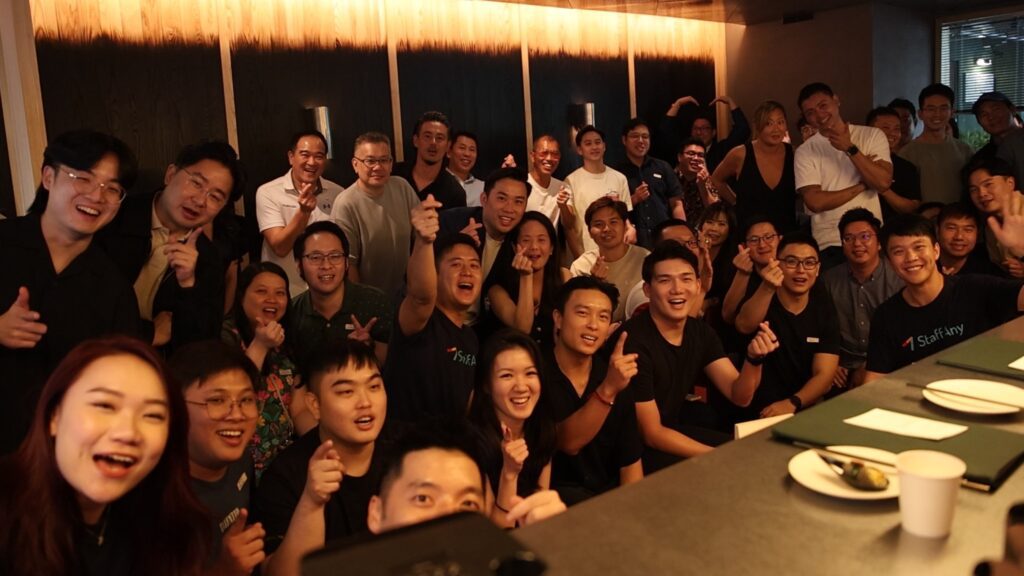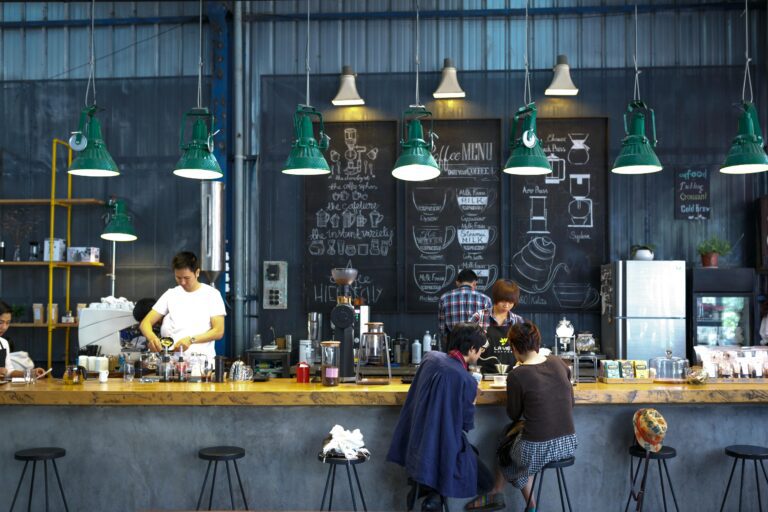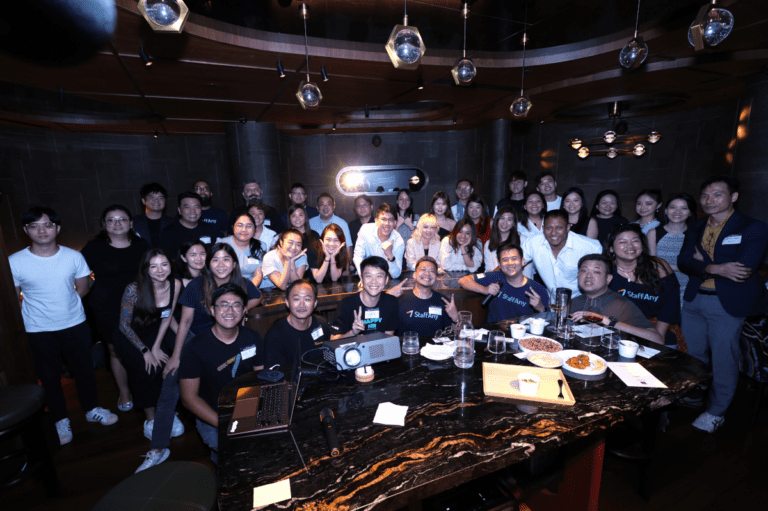“When and How Should We Use Central Kitchens?” And More Shared By Founders of Ajumma’s and A Hot Hideout
On 9 January 2025, the year’s first StaffAny Leaders’ Lounge brought together some of Singapore’s top F&B leaders to discuss strategies for central kitchens (CKs) and their role in scaling restaurant businesses.
Held at Odem, Singapore’s first craft Makgeolli bar, the event featured a fireside chat with Dominic Tan, founder of Ajumma’s and Odem, and Lee Ray Sheng, founder of A Hot Hideout. Their candid discussion provided actionable insights for F&B owners navigating the complexities of CK operations.

When to Consider a Central Kitchen
Both Dominic and Ray shared that CKs become essential once businesses grow beyond two or three outlets. CKs address critical challenges such as maintaining consistency across locations, streamlining prep work, and improving overall efficiency.
Beyond cost and efficiency, CKs can significantly improve work-life balance for outlet staff. Dominic highlighted how centralising prep work reduced employee stress, improved retention, and enabled better work-life balance by shortening in-store prep times.
Dominic emphasised that outsourcing to Original Equipment Manufacturer (OEM) partners for non-proprietary tasks like vegetable cutting and marination can significantly reduce upfront costs. Ray described outsourcing as a low-risk way to test the feasibility of CKs before committing to a full-scale operation.
Key Insight: Start small by outsourcing low-complexity tasks. Transition to owning a CK only when your business scales to the point where the operational benefits outweigh the costs.
You can also use in-house or outsourced CKs to reduce burdens on outlet staff, improving morale and retention while maintaining operational efficiency.
Balancing Cost of Goods Sold and Efficiency
While CKs can bring economies of scale, both speakers cautioned that the savings might not be as significant as expected, but can be useful for freeing up staff time and floor space at your outlets. Dominic noted that CKs are most valuable when they allow outlets to open earlier or close later, thereby maximising revenue.
Ray highlighted how outsourcing tasks like vacuum sealing for marinated meat saved costs. Previously, his CK staff needed to be trained to manage the vacuum dumping machine for the marinated meat that comes from their outsourced partner. When Ray asked his CK partner how much it would cost for them to vacuum pack the meat beforehand, each kilogram of marinated meat only costed an extra 50 cents, far less than the cost of doing it in-house.
This isn’t to say that in-house central kitchens don’t serve a purpose. For instance, processes like proprietary soup base preparation were retained in-house, while commodity tasks were outsourced.
Key Insight: Focus your CK on proprietary tasks that define your brand while outsourcing commoditised processes to save costs and improve operational efficiency. You can also use data-driven decision-making to balance the cost of running a CK against outsourcing. Employ tracking tools and regular reviews to maintain profitability.
Scaling Central Kitchen Operations in Singapore
When deciding to scale CK operations, Dominic and Ray both advised against rushing into a full-fledged setup. CK providers are willing to provide a trial period before you decide you commit to a long term partnership. Ray added that you should only start running your own CK when you are certain you know how to do it and that you have the processes for it properly set up.
Ray shared how outsourcing allowed his business to scale to 10+ outlets with a smaller CK footprint, keeping only the proprietary processes in-house. CK providers handle large volumes of raw materials each day, and may have better economies of scale than your outlet when it comes to non-proprietary foodstuffs like meat and vegetables. With that in mind, outsourcing non-trade secret processes to CK’s allows you to gain their benefits while you retain your proprietary ingredients and recipes within your in-house CKs, giving you the best of both worlds.
Dominic added that it’s not the number of outlets that determines when to adopt CKs but rather the nature of your operations. For example, if your outlet depends on a high volume of two ingredients, you could consider outsourcing these ingredients to a CK to free up more staff time. For businesses with high prep-time opportunity costs, a CK can be a game-changer.
Key Insight: Evaluate your business’s unique needs and scalability before committing to a CK. Start with trial partnerships to validate your approach.
Optimising Manpower and HR in Central Kitchen Operations
Efficient team structuring is critical for CK operations. Both speakers outlined the importance of clear roles and KPIs. Dominic’s organisation assigns a CK manager to oversee quality control and ensure SOP adherence. Dominic’s team has not officially started their in-house central kitchen yet, but the aim is to keep outlet costs of goods sold below 23% of revenue after the CK’s markup and also to offload more of each outlet’s preparation work to the CK.
Ray incorporates performance-based incentives for CK managers to maintain accountability for quality and efficiency. As the goal is to keep the CK running smoothly and prevent problems, A Hot Hideout implements a strike system: if a serious problem occurs at the CK, only the head of the CK will get a penalty to his monthly bonus. This incentivises him to keep everything working well and his team organised.
Key Insight: Develop a well-defined team structure for CK operations, with clear KPIs tied to cost, quality, and throughput. Design incentives around driving accountability.
The fireside chat underscored that there’s no one-size-fits-all approach to central kitchens. Whether you’re outsourcing or setting up your own CK, the focus should remain on balancing quality, cost, and scalability. F&B owners should evaluate their business needs, operational capacity, and financial goals before committing to a CK strategy.
By starting small, outsourcing where feasible, and leveraging technology, F&B businesses can use central kitchens to scale efficiently while maintaining quality and cost control.
What’s Next for StaffAny’s F&B community?
If you missed this event, don’t worry! We are just getting started with our community initiatves for 2025! Stay tuned for updates, and don’t miss your chance to be part of this growing community of forward-thinking HR professionals.










